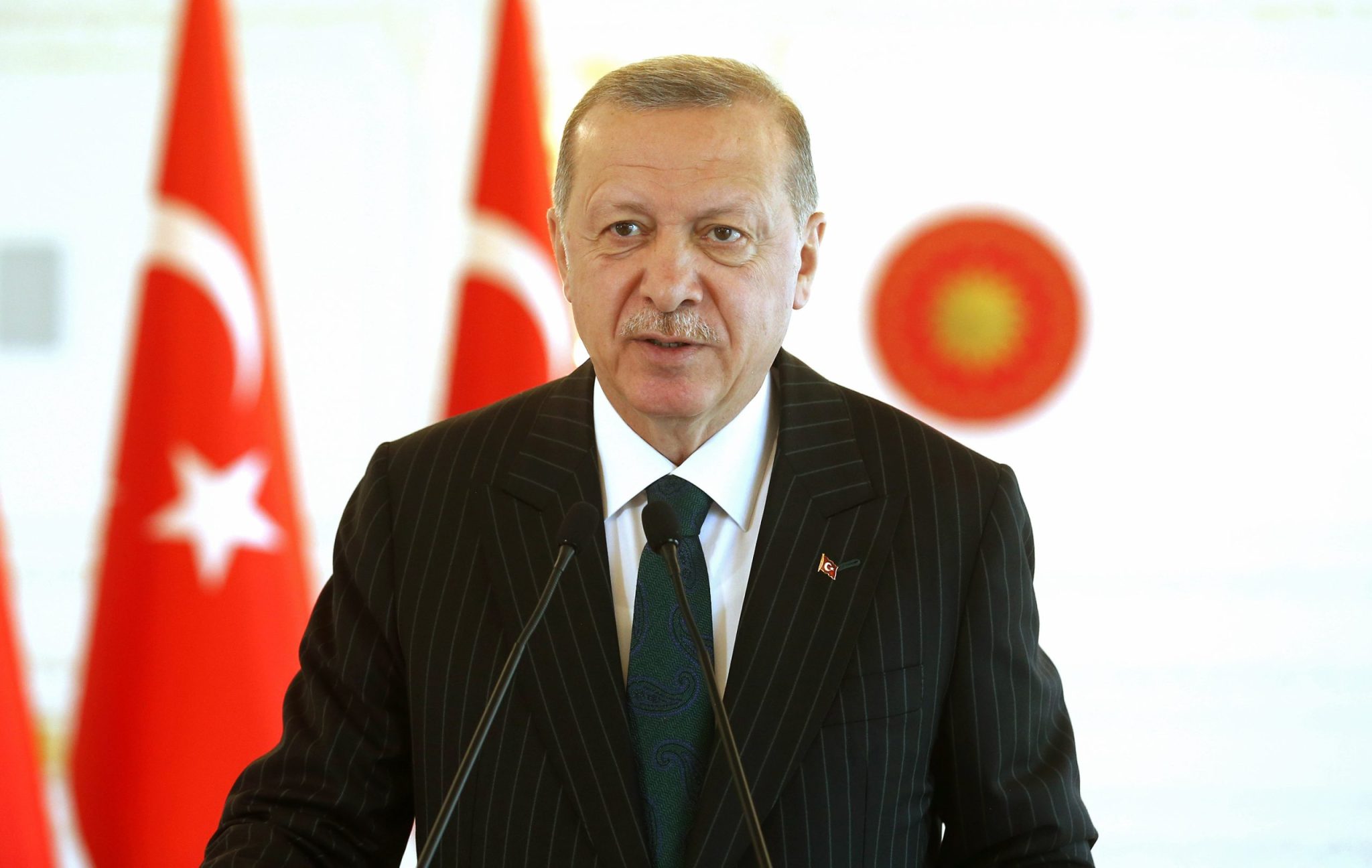In Erdoğan’s Turkey, anti-government trolls get arrested, while pro-government trolls get paychecks.
Social media has become a major source of information for Turkish people, thanks in large part to the Turkish government’s strict control of traditional media, which it uses to shape narratives in favor of the regime. Yet Turkey’s digital space—like so much of the internet—is filled with trolls that manufacture headlines and spread mis- and disinformation online. Turkey passed a law criminalizing disinformation last year, but rather than control the spread of malign content, this law simply extends the state-imposed bias present in traditional Turkish media to online Turkish spaces by making the regime the final arbiter of truth.
The problem, fundamentally, is that Turkey’s number one troll, both offline and online, is President Recep Tayyip Erdoğan himself. With more than 20 million followers, he is the most popular Turk on Twitter, and his posts regularly generate high levels of engagement. His posts also include attacks on his perceived enemies—including opposition figures and journalists—that his government would never tolerate from its critics.
On May 4, Erdoğan launched a diatribe on Twitter against his election opponent Kemal Kılıçdaroğlu. This 12-paragraph midnight tweet thread listed six alleged “facts” that Kılıçdaroğlu has “refused to explain”, among them the alleged “support” he gets from terrorists and coup plotters and alleged “offers” he has made to “Western ambassadors”. Like the prosecutor asking the witness “have you stopped beating your wife yet?”, Erdoğan’s intention was to defame his opponent by insinuation, and the attack would seem to constitute the exact sort of “fake news” that Erdoğan’s disinformation law was nominally written to prohibit.
But the problem is bigger than Erdoğan’s own social media accounts. Several arms of Erdoğan’s government are believed to be behind troll activity on Turkish social media. In January, Özgür Özel, a top politician from Kılıçdaroğlu’s People’s Republican Party (CHP), accused the Minister of Interior Süleyman Soylu of running a cyber army of 8,000 trolls. Furthermore, Soylu and his social media consultant Emin Sen had mobilized some 25 people in a private Telegram chat group, Özel alleged, and were engaged in developing a disinformation campaign against the CHP-affiliated Istanbul Mayor Ekrem İmamoğlu and his team. At the time, İmamoğlu was a top contender to become the opposition’s presidential candidate in the May elections.
Prior to 2019, municipalities controlled by Erdoğan’s Justice and Development Party (AKP) appear to have served as actual troll centers. In an interview with the independent news outlet Halk TV, for example, Orhan Sarıkaya, a well-known former AKP provocateur, detailed his trolling activities from his time working at the then-AKP-controlled Ümraniye district municipality in Istanbul. He explained that from 2013–2018, the municipality employed his team of eight to ten social media managers to run a WhatsApp group where they coordinated spreading certain pro-government messages until they became “trending” topics or went viral. Sarıkaya added that in addition to his group under AKP’s central command, both Interior Minister Soylu and Erdoğan’s son-in-law Berat Albayrak ran their own troll networks. He alleges that some of them paid TRY 300–500 ($15–$25) per tweet, while others paid monthly stipends instead, and that these groups boasted of having tens of thousands of accounts.
Meanwhile, Erdoğan’s regime is jailing journalists, activists, and ordinary citizens for their posts online, and blocking platforms when it cannot control unfavorable narratives, as it did in February in response to criticism of its handling of the earthquake. This hypocrisy encapsulates the autocratic approach to managing information: given enough power—both formal and informal—the regime can decide what it will permit to be “true”, and it can designate everything else “fake news”. Whether this brazen tactic is effective enough to overcome Erdoğan’s historic unpopularity will be determined on Sunday.
The views expressed in GMF publications and commentary are the views of the author alone.





